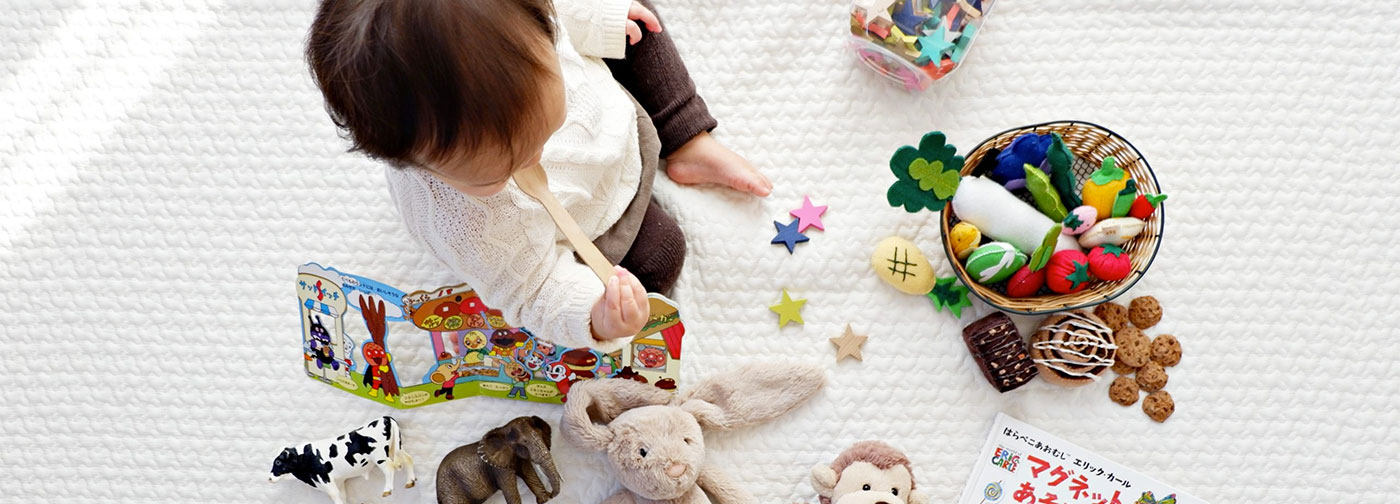Blog

Understanding the Importance of Play for Babies
Play has an important role in healthy development. For your baby, it’s not just about having fun — it’s about growing and learning about the world around them. Play helps babies develop in all kinds of ways, promoting physical, cognitive, and emotional growth.
Let’s explore more about the importance of play for babies. Here are five reasons why you should be making play a priority in your child’s life:
1. Play Makes Your Child Feel Comfortable
Usually, your child is happiest and learns best while playing. The fun, relaxed environment helps them learn and grow without feeling any pressure that may hold them back. When they’re comfortable, they’ll naturally be more open to trying new things, interacting with others, and building confidence in themselves.
2. Play Improves Your Child’s Social and Emotional Skills
Play helps your child understand, interact with, and build relationships with others. Socially, they’ll learn about social rules and expectations, and engage with people who are different from them. This builds the foundation for creating healthy, long lasting relationships with others in the future.
Emotionally, play helps your child identify and process their emotions. When they lose a game or their block tower falls down, they may learn about anger and sadness. When they win a game or color a picture, they may learn about happiness and pride. Altogether, play is helping them build their sense of self and confidence with others.
3. Play Improves Your Child’s Speech and Language Skills
Play is a great way for your child to learn how to communicate. Whether you’re helping them learn a new song or imitating silly facial expressions, watching and learning from you can help avoid any delays in speech and language development. Play can help take them from babbling, to saying simple words and phrases spontaneously, to eventually forming cohesive sentences.
4. Play Improves Your Child’s Motor Skills
Most obviously, play helps your child develop motor skills. While physical play like running, jumping, and dancing can help them develop gross motor skills, other activities like playing a board game or doing a puzzle can help them develop fine motor skills. Regardless, whenever they’re moving their body, they’re learning important things like coordination, balance, and body awareness.
5. Play Improves Your Child’s Cognitive Skills
When your child plays, they’re using their brain to solve problems and think critically. When exploration and curiosity are encouraged, they learn how things work and fit together. Play also aids in cognitive development by promoting creativity, enhancing imagination, and teaching cause and effect — all fundamental skills needed for intellectual development and cognitive processing in the future.
How to Maximize the Benefits of Play for Your Child
Now that we’ve run through the importance of play for babies, let’s discover some ways that you can maximize your time spent playing with them. The following actions will help your child reap the most developmental benefits from play:
- Play with them – Play is a great time to fully engage with your child, establishing a strong bond. When you’re with them, they can imitate your actions and learn by example.
- Let them play on their own – When your child plays by themselves, they learn independence and are pushed to use their imagination. However, this doesn’t mean you shouldn’t be there. For their safety, you should always be around to supervise your child.
- Enhance their tasks – As your child grows and learns, gradually enhance their tasks and introduce new concepts. This ensures continuous development and builds their confidence to learn new things.
Play is so important for the development of your baby! If your baby doesn’t seem to take an interest in play, or if you’re concerned he or she may not be reaching their developmental milestones, the About Play team would be happy to help. Let us know what’s going on by giving us a call or contacting us online today.
